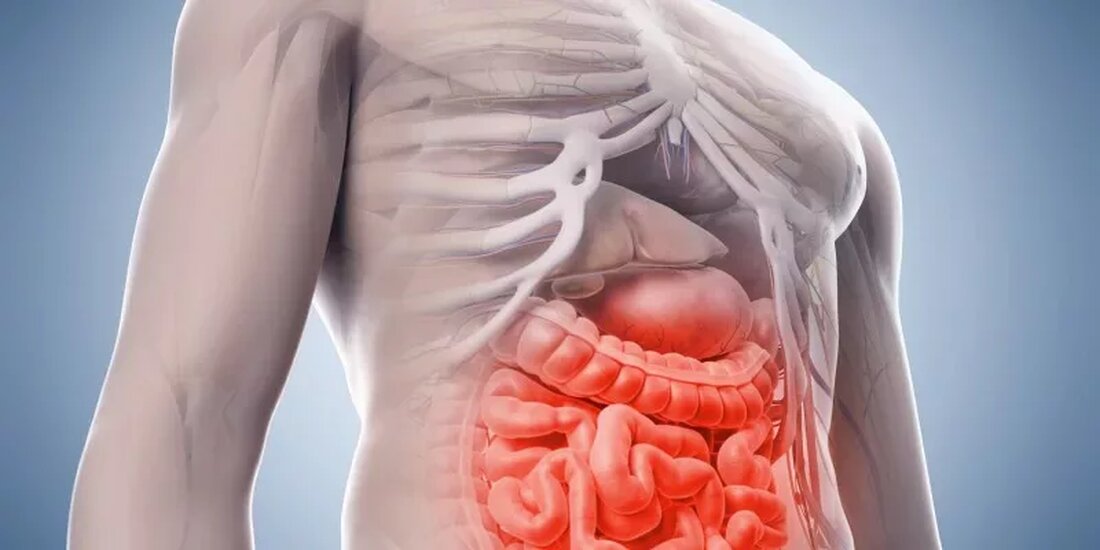Digestion disorders - 9 proven, natural remedies
For most of us, the meal time is a pleasure. Sometimes, however, the food brings with it the unpleasant symptoms of an upset of stomach or digestive disorder. Every fourth person experiences it occasionally or regularly. (Source) While there are a variety of over -the -counter and prescription drugs that are said to be aimed at the problem, effective natural remedies are available in your pantry to improve your digestion. What is a digestive disorders? Sometimes referred to as dyspepsia, digestive disorders causes a painful, burning feeling in the upper abdomen. It can also lead to you feel uncomfortable or more than usual during or after a meal. This condition concerns ...

Digestion disorders - 9 proven, natural remedies
For most of us, mealtime is a treat. However, sometimes eating brings with it the unpleasant symptoms of an upset stomach or indigestion. One in four people experience it occasionally or regularly. (Source)
While there are a variety of over-the-counter and prescription medications that claim to target the problem, there are effective natural remedies available in your pantry to improve your digestion.
What is indigestion?
Sometimes referred to as dyspepsia, digestive disorders causes a painful, burning feeling in the upper abdomen. It can also lead to you feel uncomfortable or more than usual during or after a meal. This condition typically affects the stomach and the esophagus that form the upper part of their gastrointestinal tract (GI).
Symptoms of indigestion
- Ein brennendes Gefühl im Magen oder Oberbauch
- Blähungen
- Ein Druckgefühl
- Ein knurrender Magen
- Saurer Geschmack im Mund
- Übelkeit oder Erbrechen
- Durchfall oder Verstopfung
Dyspepsia is not dangerous, but can affect your quality of life. In order to appreciate your meals and to maintain the full nutritional value of your food, you should ensure that your digestive system works smoothly.
Digestion disorders are not the same as heartburn-also referred to as acid reflux-which causes a burning feeling in your chest because stomach acid has reached the esophagus. However, digestive disorders and heartburn often come together.
Top 9 funds against digestive disorders
The good news is that you can reduce or treat indigestion by living a healthy lifestyle, making smart choices about your diet, and seeking out therapeutic plants and supplements when needed. All of these remedies have the added bonus of supporting your overall health. Most of these natural remedies are safe, but always consult your doctor if you are pregnant or have a specific medical condition.
1. Apple cider vinegar
My personal favorite is adding a tablespoon of ACV-organic apple cider vinegar-cleaned water (if you are brave or experienced, you can also drink the ACV as a shot). ACV is rich in nutrients and probiotics and counteracts stomach upset and heartburn with enzymes - natural chemicals that break down foods so that they can absorb the nutrients. The ashes (minerals) in ACV promotes the right pH in our body.
Take a tablespoon in half a glass of water before or after eating. First, shake the bottle to mix the cloudy “mother of vinegar” at the bottom. Also try adding a pinch of lemon to the water.
Our recommendation: (link removed)
2. Ginger
Many traditional herbal remedies are highly effective in reducing digestive disorders. (Source 1, source 2)
One of the best known and most commonly used is ginger root. Ginger reduces nausea and vomiting and may help prevent ulcers.
You can chew some peeled, fresh, raw ginger root before or after a meal or brew it into a tea. Ginger in any form protects the stomach and prevents digestive disorders such as cramps, flatulence and nausea. (Source)
Our recommendation: (link away)
3. Suitian root
Licorice root comes from a plant in the pea and bean (legume) family. The anti-inflammatory and analgesic properties of licorice root relieve indigestion by protecting the mucus in your stomach lining.
You can consume it as well as ginger - chewed in tea or raw when you can find it. You can also take it as a supplement called DGL or Deglycyrrhizinized licorice.
Our recommendation: (link away)
4. Fennel seeds
Fennel is a Mediterranean plant from the carrots family with a licorice-like taste. Its oil has many therapeutic applications. Fennel seeds relieve muscle cramps and reduce the gas and nausea in digestive disorders. If you dine in Indian restaurants, you may see a small bowl of it on the table.
Try chewing half a teaspoon of seeds after meals. Alternatively, you can add half a teaspoon of fennel seeds to boiling water, strain and drink as a tea.
Our recommendation: (link removed)
5. Black cumin seeds
The flowering plant Nigella sativa – also known as black cumin, black cumin and black cumin – has been known since at least the time of King Tut to protect the stomach lining, fight inflammation and ward off harmful bacteria. (Source)
Black cumin seeds are a frequently used natural remedy for GI problems such as digestive disorders.
You can use black seeds whole, ground, or boiled in water to make tea. You can also use organic black cumin oil internally in small quantities.
Our recommendation: (link away)
6. Peppermint oil
Peppermint essential oil has many therapeutic properties, including relieving GI issues such as indigestion and heartburn. (Source)
As an antispasmodic, peppermint oil relaxes the contractions of the stomach muscles that are associated with pain, bloating, and nausea. Peppermint oil also helps fight harmful bacteria.
You can take peppermint oil as a supplement in capsule form, apply it to the skin mixed with a carrier oil, or make an after-meal tea with a few drops. Be careful, though: If you have gastroesophageal reflux disease (GERD), peppermint may worsen your symptoms—herbal tea like chamomile is a better choice.
Our recommendation: (link away)
7. Digestion enzymes
Digestive enzymes help break down fiber, proteins, carbohydrates and fats. The body naturally produces enzymes, but production slows with age. Eating raw foods increases the availability of enzymes in the body. You can get papain from papaya or bromelain from pineapple. If you don't get enough digestive enzymes - whether through your diet or if your body doesn't produce them properly - it can lead to indigestion.
8. Probiotics
Probiotics are helpful bacteria or microbes that support digestive health. When the number of “bad” gut bacteria is higher than the good, it can lead to health concerns, including gastrointestinal problems such as indigestion. Probiotic supplements can help restore balance. People with functional dyspepsia have different gut microbes, but something as simple as eating yogurt with Lactobacillus for several months can restore healthy probiotic flora and relieve indigestion. (Source)
Increasing your intake of probiotic-rich foods like sauerkraut, kombucha, miso, and other fermented foods is a great way to improve your gut health.
9. Baking soda
Sodium bicarbonate, also known as baking soda, is a popular remedy for indigestion because it quickly neutralizes excess stomach acid and rebalances the body's pH. Mix half a teaspoon of baking soda in a glass of water and drink it after a meal. If you are taking medication, make sure it has been an hour or two after your last dose before taking the baking soda.
What causes indigestion?
The root cause of most indigestion lies in what you put into your body. Eating certain foods or combinations of foods can cause indigestion. These factors can increase the likelihood of indigestion:
- Frittierte, fettige oder würzige Speisen essen
- Essen saure Lebensmittel wie Tomaten oder Zitrusfrüchte
- Essen Sie Milchprodukte, wenn Sie laktoseintolerant sind
- Zu viel oder zu schnell essen
- Rauchen
- Übermäßigen Alkohol trinken
- Trinken von koffeinhaltigen Getränken wie Kaffee oder Soda
- Einnahme bestimmter Medikamente, einschließlich NSAIDs (nichtsteroidale entzündungshemmende Medikamente wie Ibuprofen) und einiger Antibiotika
Several medical conditions can lead to digestive disorders. Indigestion is common during pregnancy, stress can cause indigestion, and overweight and obese individuals may also have more dyspepsia. Even hormonal imbalances can contribute to increased indigestion.
This is how you avoid digestive disorders
The best way to treat indigestion is to avoid getting it at all. Ideally, you should eat a whole, plant-based diet, not smoke, and avoid medications and foods that cause an upset stomach. Here are some practical ways you can prevent indigestion:
- Essen Sie langsam und kauen Sie Ihr Essen vollständig. Wenn Sie sich beeilen, können Sie Luft schlucken, was zu Verdauungsstörungen führen kann.
- Warten Sie nach dem Essen eine Weile, bevor Sie trainieren.
- Warten Sie zwei bis drei Stunden, bevor Sie sich nach dem Essen hinlegen.
- Wenn Sie ein paar Pfund abnehmen müssen, starten Sie ein Fitnessprogramm oder ein Diätprogramm.
- Reduzieren Sie Ihren Stress durch Meditation oder Yoga.
When indigestion is something else
About a quarter of people with digestive disorders may have an underlying medical condition. (Source)
Some of them are:
- Gastroösophageale Refluxkrankheit (GERD) (wo Magensäure die Auskleidung Ihrer Speiseröhre reizt)
- Reizdarmsyndrom (IBS)
- Reizdarmkrankheit (IBD)
- Magengeschwüre (eine Wunde in der Magen- oder Darmschleimhaut)
- Gallenblasenprobleme wie Gallensteine
- Infektion mit H. pylori oder anderen Arten schädlicher Bakterien
- Gastritis (eine entzündete Magenschleimhaut)
- Gastroparese (ein Zustand, bei dem sich der Magen nicht vollständig entleeren kann)
- Zöliakie (Unfähigkeit, Gluten zu verdauen)
- Angst oder Depression
Contact a doctor if you have indigestion for more than two weeks, severe pain, or if your indigestion has any of the following symptoms:
- Ungeplanter Gewichtsverlust oder Appetitverlust
- Blut erbrechen
- Schwarzer, teeriger Stuhl
- Probleme beim Schlucken
- Extreme Müdigkeit
If your digestive disorders include shortness of breath, sweating or chest pain that spreads on your arm, neck or pine, go to the emergency room.
Points that you should remember
Indigestion or dyspepsia are common symptoms that include upper abdominal pain, fullness, and nausea during or after eating. Smoking, taking medications, and eating fatty, fried, or acidic foods are some of the factors that can trigger indigestion.
You can usually treat digestive disorders through diet and lifestyle changes. Apple cider vinegar, digestive enzymes, probiotics and ginger or licorice root are some of the remedies that help many. You can also take it a step further and try preventing digestion before eating slowly, losing weight, and practicing relaxation.

 Suche
Suche
 Mein Konto
Mein Konto
